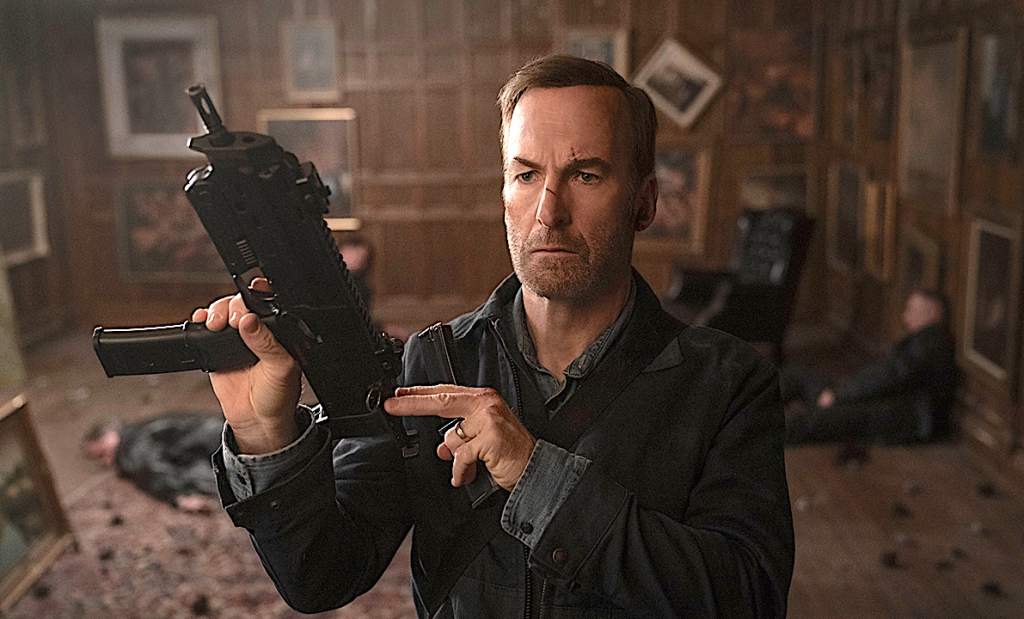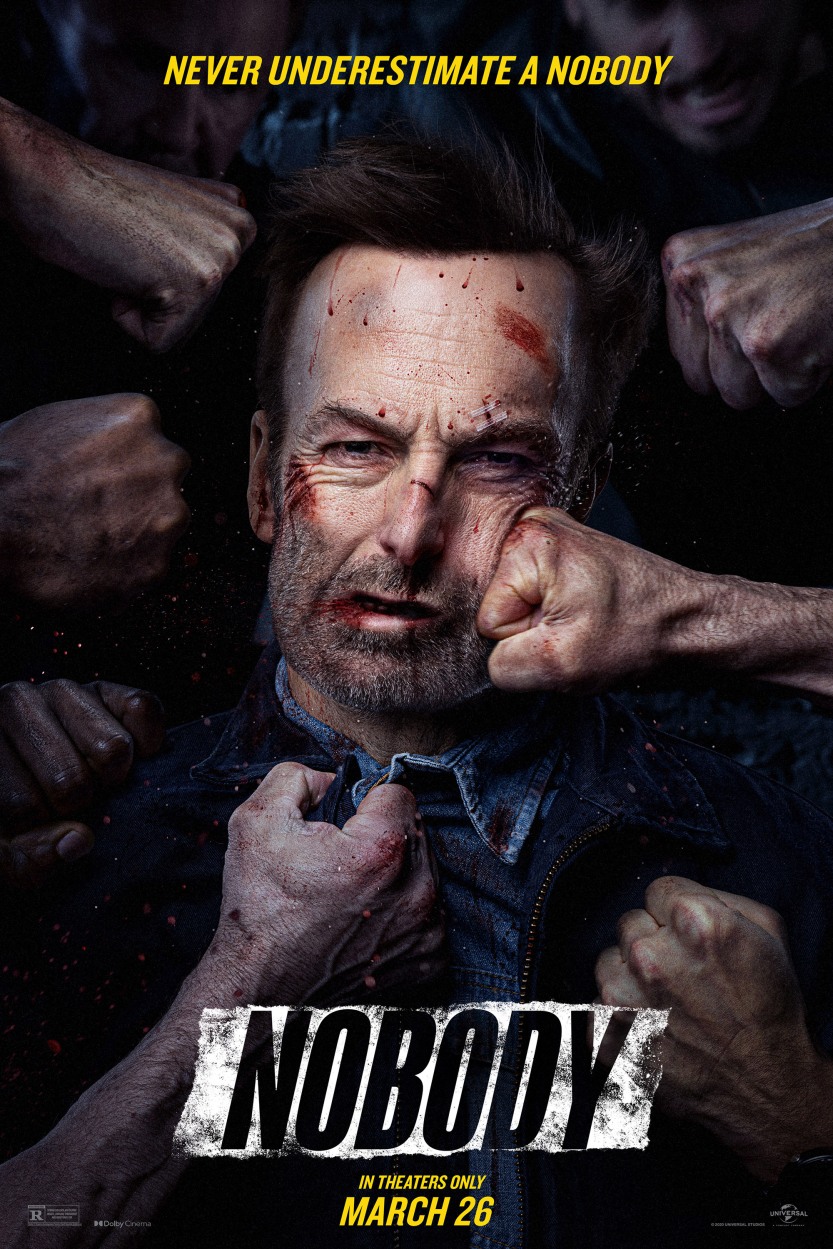Today, for probably stupid reasons, I decided to watch the movie Nobody, starring Bob Odenkirk. Odenkirk plays a seemingly mild-mannered dad and father with a normal job and normal suburban life who, as we find out through the course of the movie, has a dark history.
Unbeknownst to his children and neighbors, his former job was as an “auditor” for the military. He went into the worst situations to kill the worst of the worst – people the government didn’t even bother arresting, they were so bad.
Our bloody, violent protagonist wreaks vengeance on his foes as the movie progresses, but an incident in the beginning of the story struck me for its poignancy.
In the scene, a couple burglars enter the auditor’s home. One of them, a woman, has a gun, and the main character tries to steadily calm her down to keep the situation from escalating. However, the auditor’s teenage son ends up grappling with her accomplice, a man.
While his son has the burglar in a headlock on the ground, the woman becomes frantic. Yet our protagonist still does nothing and, on the contrary, encourages his son to let go of the man and let the burglars go.
We find out later that the auditor, experienced as he was with weaponry, recognized in the moment that there were no bullets in the gun the woman was holding. It was empty. He knew he could easily take the two down. But he preferred to keep things calm so that no one would get hurt – not even the burglars.
After being goaded by his neighbors and family, however, about being too soft in the situation, the main character successfully searches for and finds the couple to get back a cat bracelet he thought they took from his daughter. But he discovers that these burglars are desperately poor, with their baby on an oxygen machine, and they don’t know where the bracelet is. The audience gathers that this family probably burglarized his home trying to get money to pay needed medical bills.
And so, as before, he refuses to avenge himself.

Throughout the movie, you get the sense that the protagonist, played by Odenkirk, is essentially unstoppable. Hints, like breadcrumbs, are laid out throughout the film to indicate that everyone who knows anything about his history or the group he was a part of knows not to mess with him
Things spiral out of control as the plot progresses. This is a shoot-em-up movie, after all. But those scenes – those moments of mercy in his house and in the burglar’s own apartment – stick with me.
The Unstoppable Christ
Every story, in one way or another, has to do with Jesus. More often than not, we relate to his pain. The long-suffering man fighting his cancer in a favorite film can remind us of the long-suffering pains of Christ on the Cross. The experience of the poor on the big screen can remind us of how Christ himself was a refugee and had no place to lay his head.
But we forget often that Jesus was also a boss. You get the sense, especially in the Gospel of John, that he knew exactly what he was doing. He runs circles around the Pharisees who try, unsuccessfully, to push him into a theological/intellectual corner. He drives out the money-changers in the Temple, demanding that his father’s house be a place of prayer, not profit. Demons tremble before him, and the forces of nature – even the storms of a raging sea – bend to his will. And all of this was before his death on the Cross and glorious resurrection.
Yet he never threw his weight around capriciously. Just like the main character in Nobody tried to calm the situation with the burglars, so Jesus calmed his disciples down when Judas and his company came to arrest Jesus and bring him before Pilate to be crucified. “Put your sword back in its place,” he told one of his disciples who tried to defend him. “Do you think I cannot appeal to my Father, and he will at once send me more than twelve legions of angels? But how would the scriptures be fulfilled, which say it must happen in this way?” (Matt. 26:52, 53, NRSVCE)
Jesus is a model of power under control. He knows he is in a place of privilege, and he refuses to use that privilege to make people suffer needlessly, even when it seems they’d deserve it. “Father, forgive them,” he says from the Cross, “for they do not know what they are doing.” (Luke 23:34, NRSCVE)
Sometimes the place we find ourselves in is not the bottom but the top. We have the money. We have the education. We have the authority. We are the managers, bosses and CEO’s. And sometimes the person coming at us seems to deserve what’s coming to them, but you know their gun is empty. You know they are all smoke and no flames. And responding in kind, or responding heavy-handedly, would give you a rush, sure, but would also utterly destroy them. What would Jesus do in that situation?
When I taught as a music teacher in a K-8 school, I had a lot of these moments. I taught all the classes once a week – from Pre-K to 8th grade, 4 years old to 13 or 14 years. The younger ones were absolutely adorable, but the older ones, at times, were just smart enough and rebellious enough to get under my skin.
As a teacher, in a position of power, it would have been so easy to put the more wily ones in their place – call them out in front of the class, make them feel, in full, my frustration with them. Make them pay.
But they were powerless, and I had all the power. This dynamic felt uncomfortable, because I knew how easy it would be for me to make their lives miserable if I wanted to. I also knew how easy it would be to make their lives a little more bearable.
What Do We Do with our Power?

What do we do with the power we have? What do we do with the authority we have? We could scare everyone. We could lord it over them. Maybe they don’t even realize our power, or won’t realize it, until we snap and make them experience it in the worst possible way. Maybe they think we are the meek and mild suburbanite, and we could really let them have it.
But should we? Is that what Jesus would do? Because the truth is, we who are followers of Christ, every single one of us, have it made. We have the God of Heaven and earth as our father. We are promised eternity in heaven with him. No amount of verbal or physical abuse could ever take that from us. Do we say with Jesus on his way to crucifixion, “Daughters of Jerusalem, do not weep for me, but weep for yourselves and for your children,” (Luke 23:28, NRSVCE) or do we demand that everyone recognize our pain? Validate our suffering in self pity?
I know I have to be careful here. Of course, God wants us to come to him with our suffering. Of course, we need friends around us when life gets difficult. But at the same time – and maybe this is the paradox – we are on top of the world. The burglars are coming, but they don’t have any bullets.
Like Jesus, may we know when to fight and know when to forgive. May we know when to use our power to get our way and know when to set aside our power to make a way for others.
©2022 Jon Holowaty
